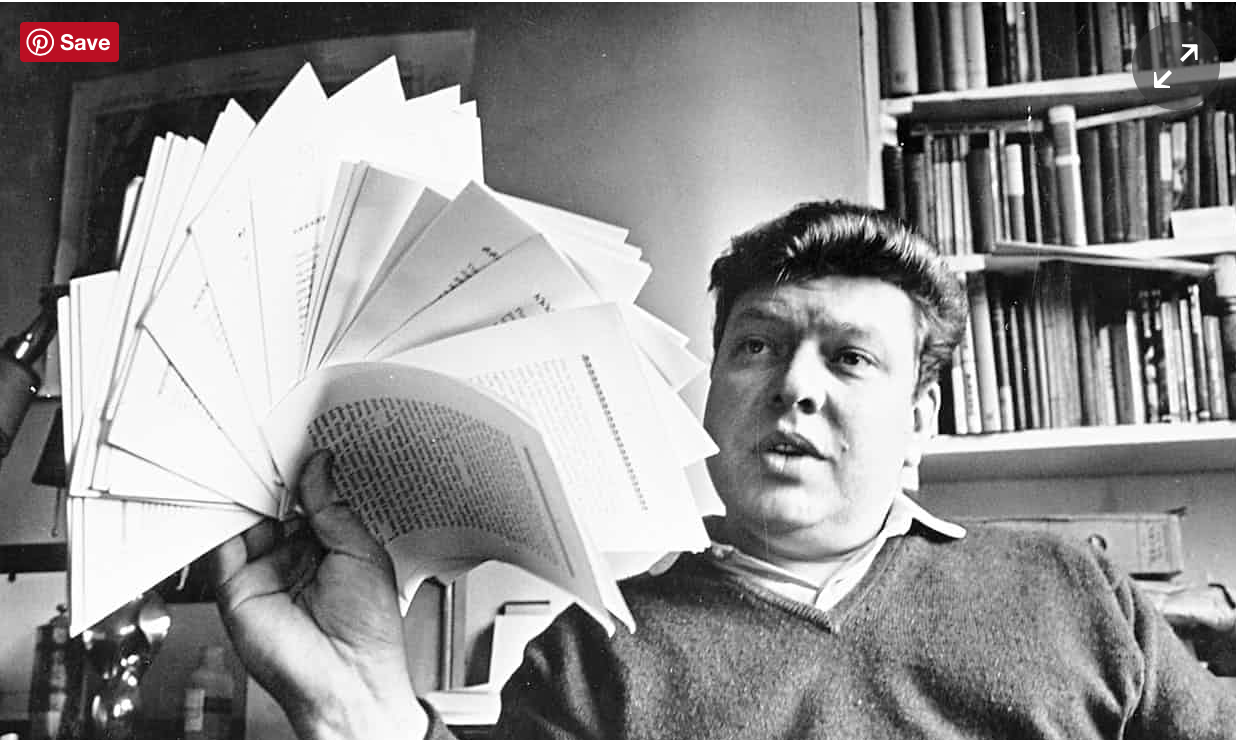B S Johnson and the British Avant-garde of the 1960s
This Guardian article, reminding us of the avant-garde British writers of the 1960s, is interesting for several reasons. They were maligned by their more conventional peers, possibly for their attention to form rather than content, yet today we are not fazed by such experimentation; indeed, it is welcomed, to the extent that such novels are often in contention for literary prizes. H(a)ppy by Nicola Barker, one of our most creative and original novelists, is an example.
I am not familiar with all of the works quoted. To my shame, I bought a collection of the novels of Christine Brooke-Rose many years ago and have not yet read them.
I am, however, familiar with the works of B S Johnson, who was the subject of a comprehensive biography, Like a Fiery Elephant (2004), by Jonathan Coe.
Johnson took great pride in his experimental novels. He claimed to have taken an English Literature degree so as to learn the rules of conventional novel-writing, in order to break them.
The peculiar thing is that his prose, for the most part, is conventional; it is his experiments with form that single him out as avant-garde.
For example, in Albert Angelo, holes are cut through several consecutive pages to allow the reader to read what is coming, although the revealed text turns out to prove the author has misled his readers.
The Unfortunates consists of twenty-seven ‘folios’, or sections, in a box, which the reader is invited to throw in the air and then read in random order, part from a specified first and last section. The idea is intended to mirror the randomness of the cancer suffered by a character in the book.
In Christie Malry’s Own Double-Entry, the protagonist assigns monetary debits to the irritations and grievances society inflicts upon him, balanced by credits for his escalating acts of revenge.
My favourite is House Mother Normal, in which the thoughts of the occupants of an old people’s home are documented over an equal number of pages, with the thoughts of each being placed at the same point in time, to describe their responses to the same events. The characters appear in increasing order of senility, with fewer and fewer words on each page, until we reach the last character, whose words are few and far between. A final chapter presents the viewpoint of the ‘house mother’ of the home.
For a few years, I collected signed first editions of B S Johnson’s books. Unfortunately, I eventually had to sell them, something I regret. I had a brief correspondence with the author, who helped me to locate copies of the books. Even though the last letter was dated just a few weeks before his suicide, he appeared both positive and appeared keen to assist.
I would thoroughly recommend his books as notable milestones in the development of the avant-garde.
